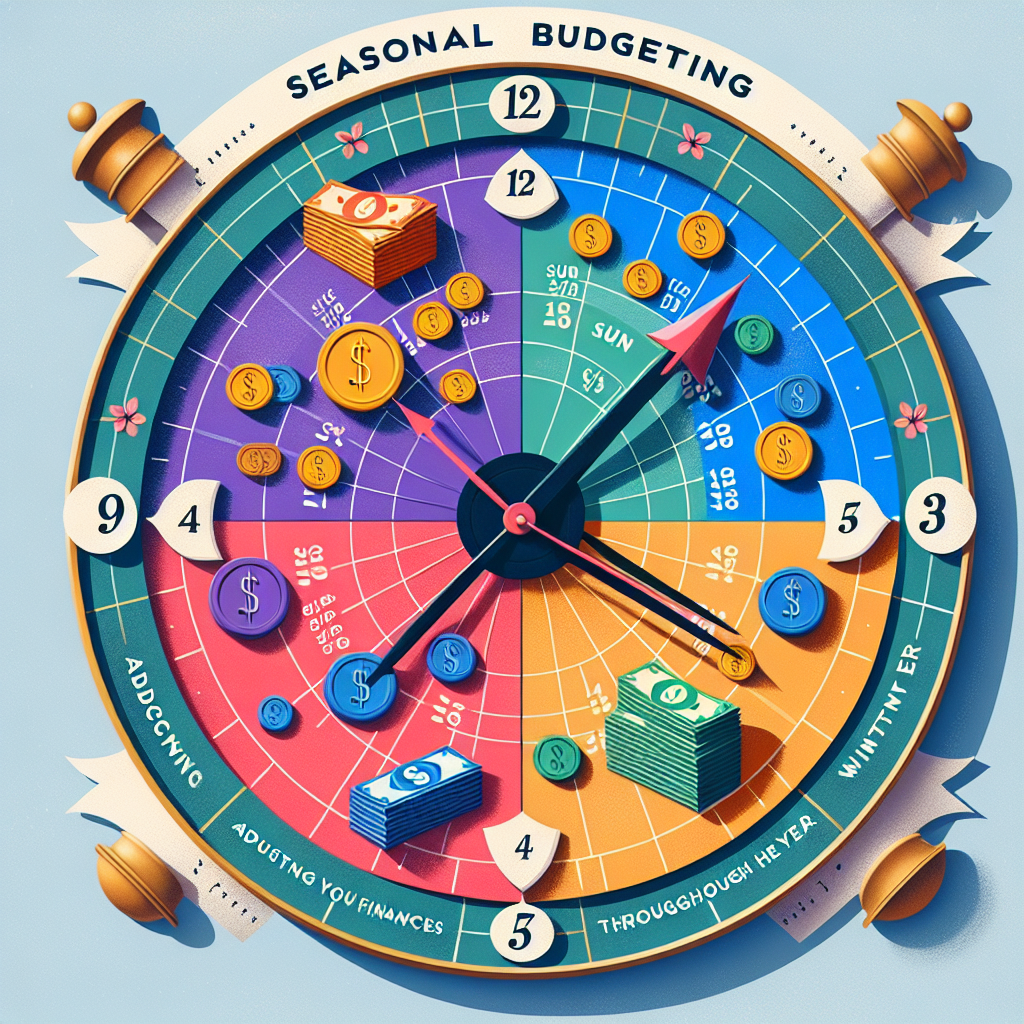In today’s fast-paced world, maintaining control over your finances is more crucial than ever. Seasonal budgeting is an effective approach to ensure your finances remain manageable throughout the year, allowing you to adapt to changing expenses and income patterns. In this article, we will cover the importance of seasonal budgeting, tips for effective planning, and how to adjust your finances across different seasons. Let’s dive in!
What is Seasonal Budgeting?
Seasonal budgeting refers to the practice of adjusting your financial plans according to different times of the year. Many individuals experience fluctuations in their income or expenses based on seasonal factors, such as holidays, school years, or seasonal employment patterns. By creating a budget that evolves with the seasons, you can better manage your cash flow, save on unnecessary expenses, and ensure you are prepared for any financial challenges that may arise.
Why is Seasonal Budgeting Important?
-
Manage Cash Flow: Seasonal adjustments to your budget help you identify potential cash flow issues in advance. By anticipating periods of reduced income or increased expenses, you can make informed financial decisions.
-
Prepare for Unexpected Costs: Seasonal budgeting prepares you for unexpected expenses that may arise throughout the year, like emergency repairs or last-minute travel plans.
-
Reduce Financial Stress: A well-structured budget can alleviate the stress associated with managing your finances. Knowing that you have accounted for seasonal costs provides peace of mind.
- Enhance Savings: By adjusting your budget to account for different seasons, you can prioritize savings for vacations, holiday spending, or other seasonal events without jeopardizing your financial stability.
How to Create a Seasonal Budget
Step 1: Identify Seasonal Patterns
The first step in developing a seasonal budget is determining the cyclical trends that affect your financial situation. Consider:
- Income fluctuations: Are you a seasonal worker? Does your income vary based on commissions or bonuses?
- Periodic expenses: Do your costs for utilities, groceries, or insurance change with the seasons?
- Holidays and events: Are there specific times of the year when you tend to spend more (e.g., vacations, holidays, back-to-school shopping)?
Step 2: Analyze Your Current Budget
Take a close look at your existing budget. Identify your fixed and variable expenses and understand your income sources. This information will serve as the foundation for your seasonal budget—it helps you pinpoint areas where you can cut back during lean months.
Step 3: Create a Seasonal Spending Plan
Divide your annual expenses into categories based on the season (spring, summer, fall, winter). Allocate your funds according to predicted income and expenses for that time of year. Keep in mind that certain categories, such as:
- Vacation Savings: Plan funds ahead for travel during summer breaks or winter holidays.
- Holiday Budgets: Allocate money for gifts, decorations, and meals during the holiday season.
- Utility Expenses: Adjust your budget for heating in the winter and cooling in the summer.
Step 4: Track and Adjust
Tracking your spending is crucial for understanding how well your seasonal budgeting is working. Review your budget regularly and adjust it as necessary. If you find you consistently overspend in a specific category, reevaluate that segment of your plan.
Tips for Successful Seasonal Budgeting
Keep a Financial Calendar
Maintaining a financial calendar can keep you organized and help remind you of important payment dates, seasonal expenses, and potential income fluctuations. Mark down events such as tax deadlines, when insurance premiums are due, and significant holidays.
Use Budgeting Tools
Utilizing apps or software designed for budgeting can make it easier to track your seasonal finances. Many of these tools allow customization based on your individual needs, making adjustments simple throughout the year.
Set Short-Term and Long-Term Goals
Define your short-term financial goals (like saving for a summer vacation) and your long-term goals (such as buying a house). These objectives will guide your budgeting efforts and provide motivation to remain disciplined.
Conclusion
Seasonal budgeting is an essential strategy for managing your finances effectively throughout the year. By understanding your income and expenses in the changing seasons, you can navigate financial challenges with ease, reduce stress, and achieve your financial goals. Start implementing seasonal budgeting today and embrace a more structured and stress-free approach to your finances!

